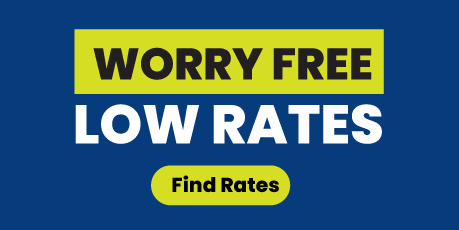Soft Pull Credit Check


What is a soft credit check?
A soft credit check, also known as a soft inquiry or soft pull, is a less invasive way of checking your credit report without impacting your credit score.
Unlike a hard credit check, a soft credit check provides an informal presentation of your credit information and creditworthiness, making it a preferred choice for initial pre-approval credit decisions in certain scenarios.
This article dives into the various aspects of a soft credit check, including how it works, its impact on credit scores, and when it is typically used.
When should I use a Soft Credit Inquiry?
When you are or will be shopping for a mortgage pre-approval, auto loan, personal loan, or a line of credit, then you will want to obtain pre-approvals so you can compare finance charges, interest rates, and loan terms.
To obtain pre-approvals without adversely affecting your credit score, you will want to make sure the lender issues a pre-approval using a soft credit inquiry. This will protect your credit score from multiple credit inquiries.
IMPORTANT: A soft credit pull inquiry gives consumers the ability to shop and compare loan offers without the risk of hurting their credit score.
Are soft credit check mortgage pre-approvals valid?
Yes, a soft credit check mortgage pre-approval is a valid pre-approval that can be relied upon for home shopping. The soft credit pull inquiry will detect any information that would disqualify the request for mortgage pre-approval.
How does a Soft Credit Check work?
Soft credit checks are performed by accessing a consumer's credit report through one, two, or three of the major credit bureaus: Equifax, Experian, and TransUnion.
These checks can be conducted with or without the individual's consent, as they do not require a "permissible purpose" under the Fair Credit Reporting Act (FCRA).
What is the difference between a Soft Credit Check vs. Hard Credit Check?
The main differences between a soft credit check and a hard credit check are their impact on credit scores and the purpose for which they are used.
While hard credit checks require the individual's approval to access the credit report, soft credit checks do not require the individual's authorization to review.
Therefore, lenders wishing to offer unsolicited pre-approved credit offers will rely upon a soft pull credit inquiry.
Main difference between a soft credit check and a hard credit check:
- Impact on Credit Score: Soft credit checks have no impact on an individual's credit score, whereas hard credit checks can lower a person's credit score by a few points.
- Purpose: Soft credit checks are often used for preliminary evaluations, while hard credit checks are required for final approval of credit applications.
- Consent: Soft credit checks can be conducted without an individual's consent, while hard credit checks require the person's explicit authorization.
- Visibility: Soft credit checks are visible only to the individual, whereas hard credit checks are visible to all parties who access the credit report.
Similarities between a soft credit check and a hard credit check:
- Source of Information: Both soft and hard credit checks access information from the three major credit bureaus.
- Compliance: Both types of credit checks are regulated by the FCRA to ensure fair and accurate reporting of credit information.
Does a soft credit pull impact my credit scores?
No, a soft credit pull or inquiry does not hurt your credit score. A soft credit check gives you the ability to shop and compare mortgage loan offers or other lines of credit without risk of lowering your credit scores.
Will I get unsolicited phone calls from other lenders with a soft pull inquiry?
No, since these soft inquiries are not visible to third parties, they do not indicate that an individual is actively seeking credit; therefore, you can avoid unwanted phone calls and emails.
Is there any limit on how many soft credit checks I can request from lenders?
No, there is no limit on how many lenders you can have requested a soft credit inquiry to shop for a mortgage loan or other lines of credit.
The frequency of these checks does not impact a person's credit score or history.
When are soft credit checks typically used?
Soft credit checks are used to complete lease and rental applications, applications for insurance policies, background checks and for solicited or unsolicited pre-approved loan offers.
Prequalification, Pre-Approvals, Loan Shopping
Soft credit checks are often used during the prequalification process for loans, credit cards, and other financial products. By using a soft credit check, lenders can provide an estimate of the terms and interest rates an individual may qualify for without affecting their credit score.
Background Checks
Employers, landlords, and insurance companies may use soft credit checks as part of their background check processes. These checks help assess an individual's financial responsibility and creditworthiness without damaging their credit.
Account Monitoring
Financial institutions and credit card issuers may conduct periodic soft credit checks to monitor their customers' credit usage and overall financial health.
Personal Credit Monitoring
Individuals can access their credit reports through soft credit checks, allowing them to monitor their credit history and address any discrepancies without affecting their credit scores.
Summary of Soft Pull Credit Inquiries
Soft credit checks provide a convenient and non-invasive method for assessing an individual's creditworthiness without negatively impacting their credit score. Soft pulls give consumers the unlimited ability to shop and mortgage lenders and other loan offers.
Understanding the differences between soft and hard credit checks, as well as the various scenarios in which soft credit checks are typically used, can help individuals and businesses make informed decisions about their credit-related activities.
By using soft credit checks wisely, it is possible to maintain a healthy credit profile while minimizing any potential negative impacts on one's credit score.







